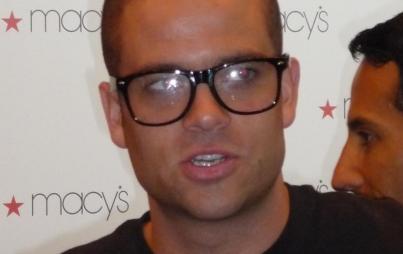
Meghan Murphy is a freelance writer and journalist from Vancouver. She's also the founder of the Feminist Current blog.
Read more stories from Ravishly's special Conversation series on men and feminism here. Have your own perspective to add? Email ravishly@ravishly.com.
The question of men's role in feminism is both complex and simple—but also, certainly, controversial. The feminist movement is, has always been, and will always be a woman-led movement. It is a movement for the liberation of women and, as the oppressed gender in a patriarchy, it is women who must define their own experiences, collectively, and lead the way forward. That said, I do believe men can—and should—play a role in our fight.
Part of my aim, in terms of the work I do, is to show how some of the things we take for granted in society—for example, pornography, sexual objectification, prostitution, the idea that women must be attractive in order to be valued—are harmful to women, both as individuals and as a class. Many women already understand this, having been subjected to things like street harassment, having internalized the body-hatred inflicted on them by society, or having perhaps been pressured by their boyfriends to watch pornography with them. Certainly the fear of aging or of being perceived as unattractive tells women a lot about our worth . . .
Because men don't experience these things, I just don't think they think about it very much. They don't understand how something like porn-use, which is so common and so normalized for men and boys these days, could possibly be harmful. They don't understand how objectification translates to violence. Men need to be educated and they need to essentially unlearn masculinity in order for women to truly be free from violence, sexism, and misogyny.
If this movement is to succeed, men need to change their behavior. They need to start seeing women as more than pretty objects or things that exist to provide sexual pleasure. I realize that some will disagree with me but I do believe in men's humanity and I do believe that men can change. And with that belief in mind, I feel that male allies are important to our movement.
But it can't be the sole responsibility of women to do this education. Feminists tire quickly of explaining basic feminist concepts over and over again. It can be especially frustrating to explain said concepts to your oppressors. Men can have a powerful and important role in feminism by doing that educating and by holding other men accountable for their words and their actions. Women know what happens to them when they call out men's sexism or harassment or abuse—they are derided, called "crazy," "bitches," "man-haters"—and so on. It is time for men to step up and say to other men: "It isn't ok for you to go to strip clubs and this is why . . ." or, "It isn't ok to call women 'cunts,' and this is why . . ." It is men's responsibility to believe women when they say they've been raped or abused and to not stand idly by when their friends engage in victim-blaming.
What men cannot do in the feminist movement is be leaders. They may not appropriate the movement or the label of "feminist." I have no problem referring to men who are truly feminist allies as "feminist men" but, at the same time, these are men who would never define themselves as such. It is not their place to do so.
The trick for men, when it comes to feminism, is "show don't tell." A man who tells me he is a feminist is an instant red flag—because it tells me he doesn't know that allyship, for men in feminism, is about humility and about knowing when to step back and when to step forward. I won't pretend as though it's an easy thing to learn, but it is imperative for those men who truly are invested in building an equitable world free from violence against women and gender-based oppression.







